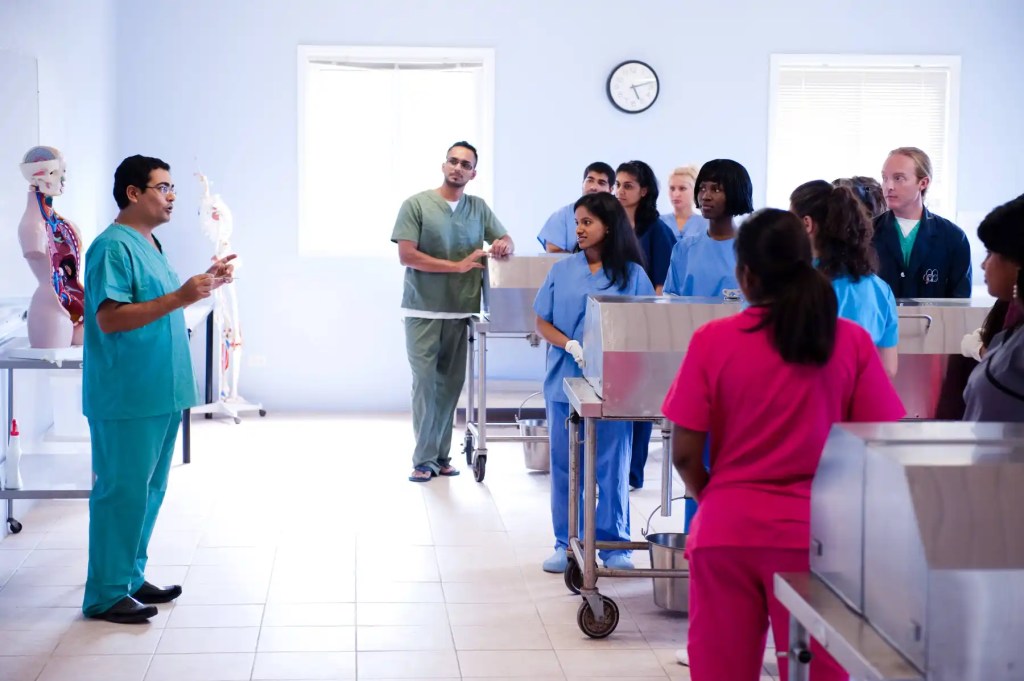
What is the difference between a medical examiner and a forensic pathologist?
Unravel the distinctions between a medical examiner and a forensic pathologist in this insightful guide.
Medical examiners and forensic pathologists can often be talked about interchangeably. The professions however are different and require unique educational training and work responsibility.
For example, we are aware that in cases of unexpected and violent deaths, an examination of the cause of death becomes necessary. Medical examiners carry out this process and pick samples to be sent for further investigation. Also, every state has different laws. In some states, the medical examiner is a licensed forensic pathologist while in other states they are physicians with other duties. In a few states, they are not required to be a physician.
Similarly, in case you ever wondered who examines body fluid and tissue samples collected from the deceased, then the answer is a pathologist. These medical professionals work in laboratories and examine every sample to uncover the cause of sudden death through an appropriate procedure. They are also the ones who perform autopsies.
Hence, the two medical fields while connected and often overlapping are vastly different. If you are keen to become a forensic pathologist you will need additional training and certifications. You must complete a residency in pathology, followed by a fellowship in forensic pathology. Read on to find out more about the professions.
What is a medical examiner?
A medical examiner is most often a physician who investigates and examines a person who has died a sudden, unexpected and violent death. They also determine the cause of the death and how it happened.
While carrying out this role, you will be required to use your medical expertise while undertaking a physical examination of the deceased and also assess their medical history. While the physician medical examiner is not required to have a speciality in pathology, the law varies on a state by state basis. For example, according to the California law, a “medical examiner shall be a licensed physician and surgeon duly qualified as a specialist in pathology”.
Medical examiners are also required to work with law enforcement and public health officials and their duties include reporting data for other medical conditions that may affect public health. They will decide if a forensic test is needed to determine the cause of death and they will also complete the death certificate and pick samples that are later examined by a pathologist.
What is a forensic pathologist?
The forensic pathologist will have attended four years of medical school, followed by a minimum three-year pathology residency. They will then complete a fellowship year in forensic pathology. Their area of speciality is the examination of persons who die suddenly, unexpectedly or violently. The forensic pathologist is an expert in determining cause and manner of death.
They undergo rigorous training in traditional medicine and forensic sciences to become competent in performing autopsies. Through this procedure, they can determine if the deceased died of disease, poisoning or some other violent action. They also observe all the samples to reconstruct the injuries of the person based on the law enforcement’s investigative information.
It is the forensic pathologist who establishes the cause of death and their training extends to not just studying microscopic samples but also analysing crime scenes. They are also expected to testify in courts and present evidence collected from the autopsy.
Looking for the right medical school to begin your journey? Then take a look at Medical University of Americas, a school committed to providing the best education possible
MUA has an integrated, systems-based curriculum that parallels the training you would receive at a top US medical school. MUA believes medicine is best taught in smaller class sizes with one-on-one instruction.
With a USMLE success rate of 95% and clinical rotations in the U.S., the medical school has a long list of graduates who have performed remarkably well in their careers. If you are also keen to study at a Caribbean island medical school then check out MUA’s MD programs and admission requirements. Click on the links for more information.
Is forensic pathology for you?
Forensic pathology is an interesting career choice that appeals to many medical students. Learning through the use of a modern gross anatomy laboratory, such as one provided by MUA, can make this subject all the more intriguing for students. A well-equipped dissection laboratory, along with modern teaching modalities, gives MUA students an excellent insight into pathology.
Among MUA’s graduate community is Dr Daniel Shapiro; he not only enjoys investigating the pathology of diseases but also collaborating with law enforcement.
Dr Shapiro is currently pursuing a fellowship in forensic pathology at the office of the Chief Medical Examiner in Richmond, Virginia. He developed his interest in forensic pathology while studying at MUA. His favourite class was pathology as the teacher was passionate and made learning an invigorating experience. By the time he reached his clinical rotations, Dr Shapiro had already made up his mind to pursue pathology.
During that time, he realized that he preferred working in the lab and “using his hands” over daily patient interaction. Another perk was that being a pathologist meant a less stressful lifestyle.
Dr Shapiro was accepted at NYU Winthrop Hospital for a four-year residency and looks back fondly on his time at the Caribbean school of medicine which shaped his career. The island of Nevis has given him a memorable experience; he made many friends and enjoyed studying under the guidance of teachers who were always there for their students.
“The TA sessions were particularly useful, and interacting with other students who had taken the course already was really helpful.”